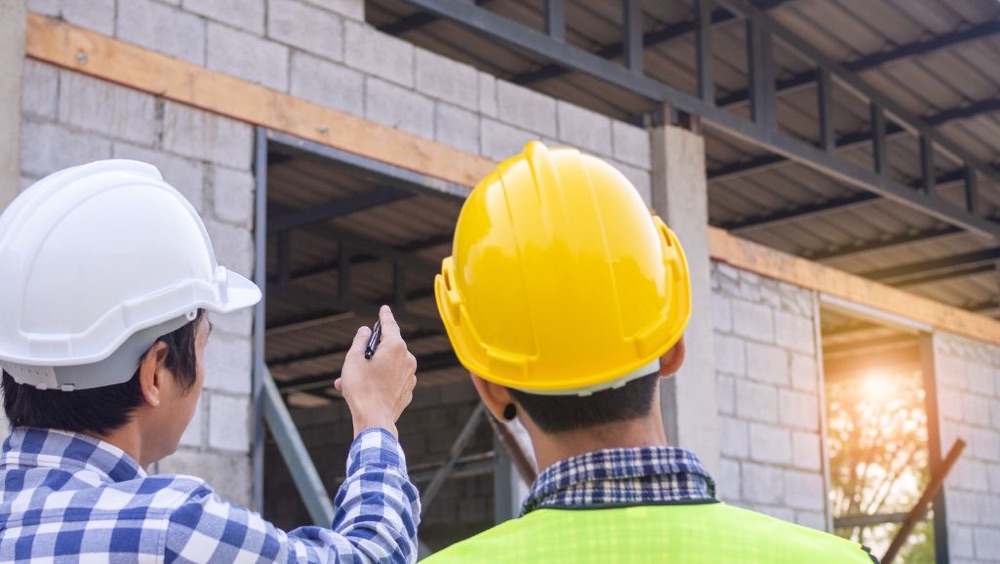 In a perfect world, every construction or renovation project would go exactly as planned with the expected results. Unfortunately, that rarely happens. Sometimes, design plans are flawed, work is done incorrectly, or materials are defective, resulting in construction defects that you, as a contractor or subcontractor, may be held liable for.
In a perfect world, every construction or renovation project would go exactly as planned with the expected results. Unfortunately, that rarely happens. Sometimes, design plans are flawed, work is done incorrectly, or materials are defective, resulting in construction defects that you, as a contractor or subcontractor, may be held liable for.
Contractor insurance helps protect you and your business from lawsuits, including those caused by construction defects.
What are Construction Defects?
A construction defect is when part or all of a construction project fails to comply with and deliver everything laid out in a contract. It's when a construction project doesn't look or perform as the buyer expected and the contractor promised. Examples of construction defects include water intrusion, foundation cracks, plumbing leaks, and mechanical problems.
Construction defects can be caused by poor design, lack of planning or supervision, lack of inspections, defective materials, etc. These defects can lead to structural deficiencies that reduce a building's value and create harmful conditions for the occupants.
5 Construction Defect Causes:
- Design Flaw
This type of defect is typically created by an engineer or architect. Examples of design flaws include roof designs that cause water to leak into the house or inadequate structural support that can or does cause a collapse. A contractor is typically not held liable for following an architect's or engineer's flawed design unless they are aware or should be aware there is a defect. It is often difficult to determine the cause of this type of defect. - Construction Defects
Poor quality workmanship during installation can cause many issues and is considered a construction defect. Construction defects can cause water intrusion, cracks in the foundation, dry rot in lumber, electrical and mechanical problems, and plumbing leaks. - Defective Material
"Using inferior building materials can cause significant problems, such as windows that leak or inferior concrete that cracks under pressure. Inferior products can fail to perform and function adequately, even when properly installed," FindLaw explains. "Common manufacturer problems with building materials can include deteriorating flashing, building paper or waterproofing membranes that are not up to code, inferior asphalt roofing shingles, or using inferior drywall that is not approved for use in wet or damp areas, such as bathrooms and laundry rooms." - Lack of Maintenance
Construction defects can result from poor maintenance over time, which is why regular quality checks are crucial. - Normal Wear and Tear As structures age, they will wear down, which can lead to construction defects.
2 Construction Defect Categories:
Obvious or Patent An obvious defect is something immediately apparent. For example, a worker accidentally punches a hole in a wall and doesn't fix it.
Latent This is an issue that is not immediately obvious. For example, a support beam that looks good but gives way over time because it is not strong enough or a newly installed roof that leaks after the first heavy rainfall. It's often difficult to determine how this type of failure occurred.
Who Can Be Held Liable for Construction Defects?
Depending on the defect and its circumstances, anyone involved in the construction project, including the contractor, subcontractors, builder or engineer, architect, or manufacturer of materials used, can be held liable for construction defects. Sometimes, the property owner can even be found liable.
Insurance to Protect Your Business
There are many types of Contractors Insurance to help protect you and your business from construction defects and other liability issues. Here are just a few:
- Professional Liability Insurance
Professional Liability Insurance (aka Errors and Omissions and E&O Insurance) helps protect your business from claims of errors, omissions, negligence, violation of good faith and fair dealing, misrepresentation, and inaccurate advice. - Commercial General Liability (CGL) Insurance
CGL is one of the most important insurance products for any business. CGL protects your business if you are liable for property damage. It covers the cost of medical and legal expenses and damages if you are found liable. - Commercial Automobile Insurance
If you use a vehicle (which, of course, most in the construction industry do) to conduct business, such as transporting materials, equipment, or employees, you should have commercial automobile insurance to help protect you in the event of an accident that causes bodily injury, loss of life, or property damage. - Builders Risk Insurance
Builders Risk Insurance helps replace materials, tools, and lost, damaged, or stolen equipment. - Cyber Insurance
Cyber Insurance helps cover your business's liability for data breaches that involve sensitive information, such as credit card numbers, driver's license numbers, and health records.
Start Saving on Contractors Insurance Today!
If you want to ensure that you have the right insurance at the lowest cost, the agents at American Insuring Group can help. We specialize in Contractors' Insurance, and as independent agents, we compare the quality and cost of your coverage with those of multiple competing insurance companies to find you the right policy at the right price!
Don't Delay - start saving today by calling us at (800) 947-1270 or (610) 775-3848, or connect with us online.







